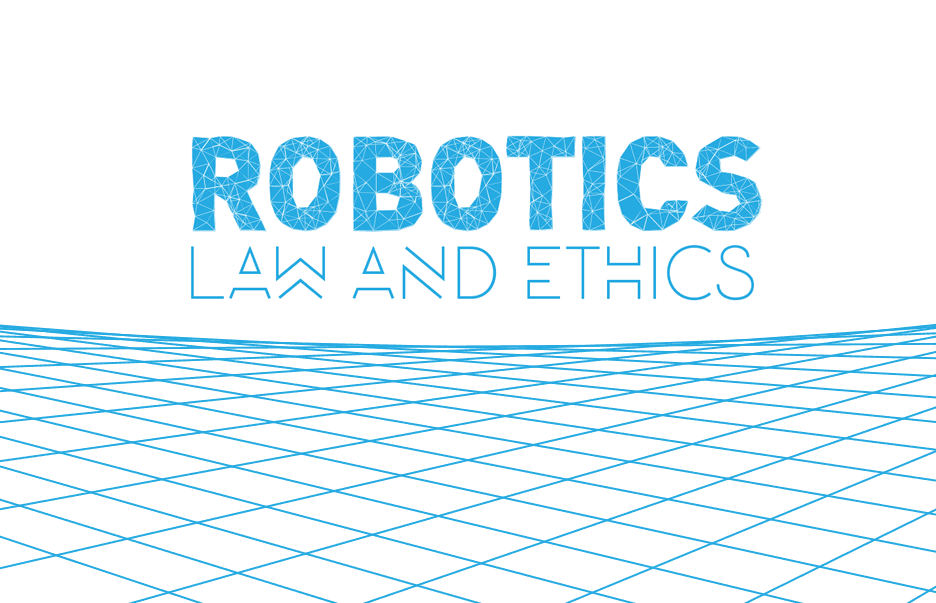Robotics: Law and Ethics

Stemming from research done by the "RoboLaw" project (with European Union support), this workshop introduces a social-science perspective to the technological discussion of robotics. Are existing legal frameworks adequate and workable in light of the rapid proliferation of new technologies? Do developments in this field affect legal and social norms, values, and processes?
PROGRAM
9:30 – 10:00 Sign-in and coffee
Session I
10:00 Welcome and introduction
Barbara Faedda (Associate Director, Italian Academy)
Erica Palmerini (Professor, Scuola Superiore Sant’Anna, Pisa)
10:20 Barbara Henry (Scuola Superiore Sant’Anna, Pisa)
Robotic narratives as examples of some roboethical ambiguities: where the 'uncanny' is at home
10:40 Lydia H. Liu (Columbia University)
The technē of the unconscious: why the 'uncanny valley' matters to philosophy
11:00 Ronald Sandler (Ethics Institute, Northeastern University) & John Basl (Northeastern University)
Do we need AI research subjects oversight committees?
11:20 Coffee break
11:30 Antonio Carnevale (Scuola Superiore Sant’Anna, Pisa)
I Tech Care? Do we need robots to take care of people?
11:50 – 12:30 Discussion
12:30 – 2:00 Break
Session II
2:00 Sunil K. Agrawal (Columbia University)
Human cooperative robots: retraining of human movements in subjects with neurological diseases
2:20 Erica Palmerini (Scuola Superiore Sant’Anna, Pisa)
Legal dimensions of robots in daily life
2:40 Bryant Walker Smith (University of South Carolina)
Law of the newly possible
3:00 Andrea Bertolini (Scuola Superiore Sant’Anna, Pisa)
A law and economics approach to liability issues in robotics
3:20 – 4:00 Discussion
4:00 Closing remarks
Organizer: Erica Palmerini
Co-sponsors: Scuola Superiore Sant’Anna di Pisa ● University of South Carolina School of Law ●Northeastern University Ethics Institute ● Melchionna Law, PLLC
SPEAKERS
Sunil K. Agrawal is professor of mechanical engineering at Columbia University. He obtained a PhD degree in Mechanical Engineering from Stanford University in 1990 with an emphasis on robotics, dynamics, and control. He currently directs the Robotics and Rehabilitation Laboratory (ROAR) and Robotic Systems Engineering Laboratory (ROSE).
John Basl is assistant professor of philosophy at Northeastern University. He received his PhD from the University of Wisconsin – Madison in 2011. His work focuses on issues in ethics, especially applied ethics, and in the philosophy of biology, such as the question of whether non-sentient organisms and collectives can be said to have interests and whether such interests are morally relevant—and whether and how the moral status of non-human research subjects might be altered.
Andrea Bertolini is assistant professor in private law at the Scuola Superiore Sant’Anna (SSSA) in Pisa. Dr. Bertolini earned a Ph.D. in private law summa cum laude at SSSA and a Master in Laws (LL.M.) from Yale Law School (CT-USA). Since 2013, he has been an Adjunct Professor in Private Law at the University of Pisa, Dipartimento di Economia e Management.
Antonio Carnevale earned a degree in Philosophy from the University of Bari in 2000 and a PhD in Political Philosophy in 2007 from the Scuola Superiore Sant’Anna in Pisa. He is currently research fellow in Philosophy within the Robolaw project. His recent research interests include philosophy and human enhancement, robotics and disabilities, and ethics and emerging technologies.
Barbara Henry is full professor of political philosophy at the Scuola Superiore Sant’Anna in Pisa. The main issues of her inquiries are: German classical philosophy, neokantianism, political judgement and hermeneutics, modern political myths and totalitarianism, philosophy of culture, political and cultural identity, tolerance and interculturality, political and cultural globalization, gender issues, and qualitative empirical research.
Lydia H. Liu is the W.T. Tam Professor in the Humanities and Professor of Chinese and Comparative Literature at Columbia University. She teaches in the Department of East Asian Languages and Cultures and was recently appointed the director of the Institute for Comparative Literature and Society (Columbia).
Erica Palmerini is associate professor of Private Law at the Scuola Superiore Sant'Anna in Pisa. She is the scientific coordinator of the EU RoboLaw project (G.A. n. 289092). Her main research interests are in the areas of law and technology, bioethics, tort law, and medical law.
Ronald Sandler is chair of the Department of Philosophy and Religion, professor of philosophy, a researcher in the Nanotechnology and Society Research Group, a research associate in the Environmental Justice Research Collaborative, and the Director of the Ethics Institute, all at Northeastern University. His primary areas of research are environmental ethics, ethics and technology, ethical theory, and Spinoza.
Bryant Walker Smith is assistant professor in the School of Law and (by courtesy) in the School of Engineering at the University of South Carolina. Bryant’s research focuses on risk (particularly tort law and product liability), technology (automation and connectivity), and mobility (safety and regulation). As an internationally recognized expert on the law of self-driving vehicles, Bryant taught the first-ever course on this topic and is regularly consulted by government, industry, and media.